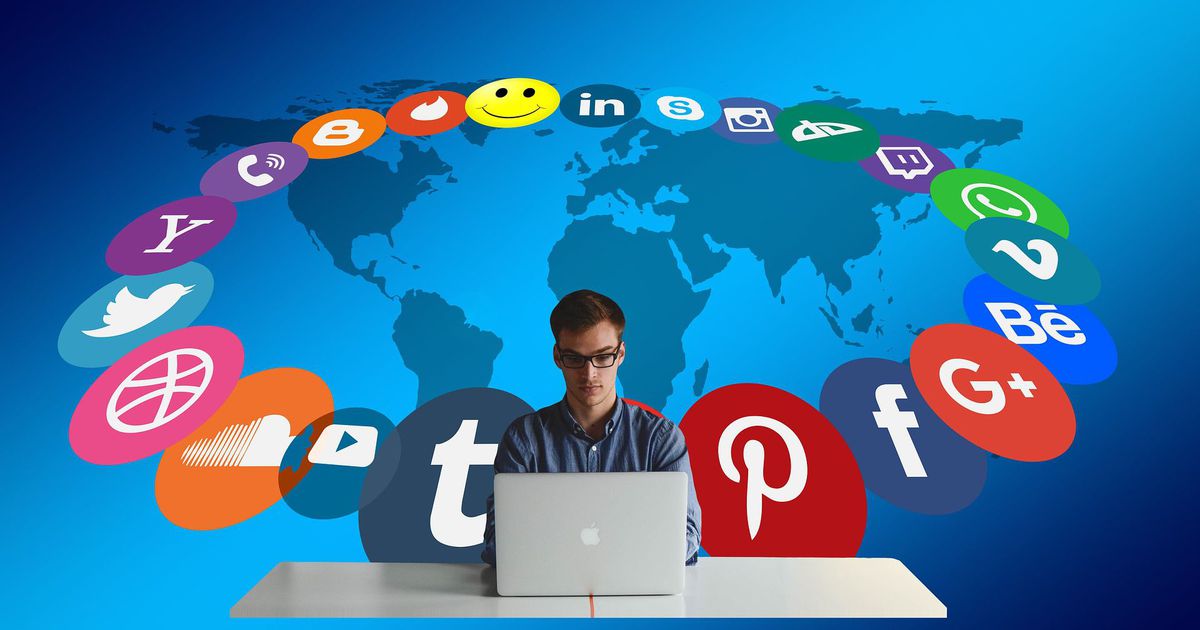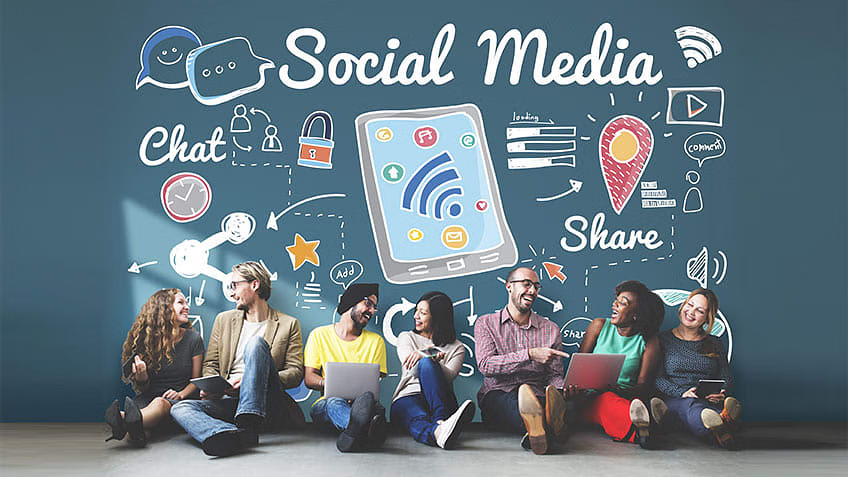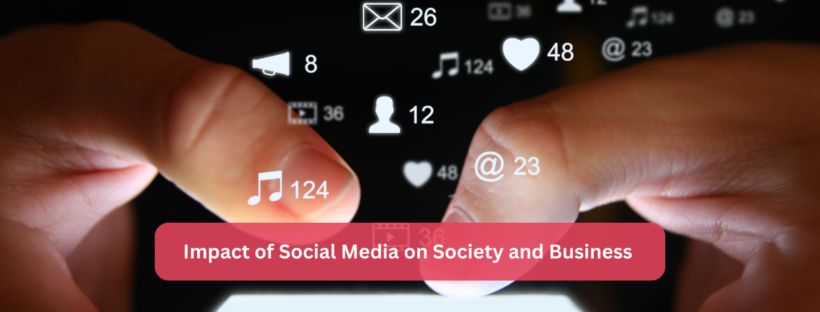The use of social media has brought major changes to businesses and society in the last two decades. Due to the popularity of social media platforms like Facebook, Instagram, Twitter, LinkedIn and Tik Tok, people and organizations have been given an open door to freely access communication, content and audiences. Throughout this paper, the significance of social media in not only transforming communication between people but also changing the rules of business competition in the modern fast world will be discussed.
Social media is used almost in all aspects of human life, being a technological advancement that has thrived in the recent past, commerce, culture, communication, and even politics. This paper discusses the effects of social media, particularly on companies and society, with the aim of pointing out the advantages of using social media as well as some of the disadvantages that are incurred by use of social media.
1. Social media and business change
1.1 Increased Sales Promotion and Recognition of the Brand
Effectively, one of the greatest effects of social media on businesses is the decentralization of marketing. Earlier, marketing was a luxury enjoyed by big players with deep pockets that could put substantial amount on tv, radio, newspaper ads etc. Social media provided an opportunity to users with fewer resources to get their messages across to others especially the intending buyers.

That is why social media marketing has become so popular as millions of people use at least one or two platforms daily. The somatic content of the websites, paid mainstream advertisements and integrating influencers have all transformed into primary strategies that the marketing departments use to aim the customers. This has also made it easier for businesses to engage with the end consumer directly; receive feedback as to whether their goods or services have met the required standards and at the same time create brand awareness.
1.2 Customer Relations and Interactions
The idea of customers serving themselves has been embraced and seen as a norm by the new generation’s most popular tool, social media. Social media such as Twitter & Facebook have become customer support where various companies can answer questions and address issues in real time. This direct interaction enhance the closeness of firms with customers in a way that is perceived to be more trustworthy.
And nowadays businesses are required to engage in activity on the internet and specifically respond to comments and complaints. Such high level of disclosure has increase customer awareness and demanding for corporate accountability on the other hand present the corporation with way to vouch their good customer relationship.
1.3 Influencer Marketing
The fact that endorsement by social media influencers has become quite common alters the way brands make these endorsements. Social media influencers are dedicated masses which cannot be targeted through conventional marketing techniques. These influencers share organic material with their audience and what they post can occasionally have a much greater impact than an advert.
When businesses engage influencers, they gain credibility, and their reach is over a large population. But this has also caused issues of transparency which has seen regulators demand that influencers declare that those are paid endorsements to practice good standards of advertising.
2. Effects of Social Media on Society
2.1 New Modality of Interacting
This paper discusses social media as one of the most important changes that have taken place in the societies we live in today in terms of communication. Different people are nowadays given the opportunity to communicate with friends, relatives, and coworkers from different parts of the world at the same time. This has helped in rising the interconnectivity of the world but at the same time come with difficult to deal with issues including fake news and cyberbullying.
Thanks to social media, private and formal messaging merged. Although it creates discourses and mobilization worldwide, it has also contributed an overdocumentation tendency, with people updating frequently. This can sometimes result in things such as Imposter syndrome or feeling of “FOMO” – the fear of missing out when people compare their lives to the highlight reels that are presented to them by others.
2.2 Political activism
Social media is a now a critical battleground for political communication and campaigning. The two major platforms, most obvious today are, Twitter and Facebook have been useful in protests, sharing of politics ideas and advocacy. SITE uses include the Arab Spring, BlackLivesMatter, #MeToo and many more to demonstrate how social media has actively played a role in rallying masses.

However, it should be pointed out that those very tools that assist in political mobilization can also be put to ill-use. The other chief issues include fake news, political manipulation, and hacking of elections. It is for this reason that several platforms still have not been decided on how best to allow freedom of speech while at the same time avoiding the dissemination of fake news.
2.3 Social media and Mental health
There are so many strengths of using social media but the effects on our mental health are becoming a worry. Research has revealed that social media use has negative effects on the health of people and especially the youths are affected in terms of fear, sadness, depression among other diseases. Optimization can lead to low self-esteem, self-compass, and comparison dysphoria and these effects are due to constant bombardment of highly polishes images and content.
The compulsive use of the social media platform as a result of the alerts and the always refreshing interface of the sites also results to distraction and hence a feeling of overwhelmed. As a result, there are recent efforts by creators of such applications, for instance Instagram to limit the amount of time users spent on screen and more awareness around the challenge of developing a healthy relationship with technology.
3. Some of the considerations and concerns associated with the use of Information Technology are discussed below hence the subtopics; Challenges and Ethical Considerations.
- Data Privacy Concerns
Every day new technologies are developed and being availed in the market and most of these technologies involve the collection of large amount of information from users and this prompts the issues of privacy. The collection of personal information for serving adverts has sparked issues to do with consent and specifically, transparency. One reasonably well-known case of how personal data may be used is the famous scandal connected with the management company Cambridge Analytica.
Governments and modern regulators place much attention to how the owners of social media platforms manage data of the users, so there is an enhanced demand in higher standards of privatization along with enhanced privacy acts.
- The Spread of Misinformation
Misinformation is probably one of the most significant issues that affect society through use of social media platforms. Opinions can be swayed and dangerous information can spread on the platforms, which was mentioned multiple times during the pandemic.
Mark Zuckerberg said that social media platforms have started using features and specific algorithms that would recognize fake news but keeping fake news off while respecting free speech is still quite a concern. The fact that fake news spreads far much faster than the authentic news presents a real challenge when it comes to trust in digital media.
